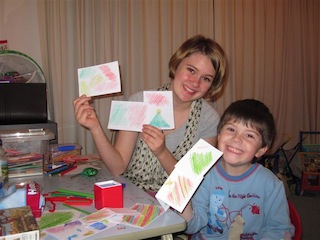 Pam Sorooshian, on her daughters' experiences in college:
Pam Sorooshian, on her daughters' experiences in college:
Unschooling seemed to have given them HUGE advantages in college. They were, frankly, shocked at the poor preparation and attitudes of most other students. Other students seemed to them to be "going through the motions," but were not really interested in learning.
It is hard to explain, but all three of my kids and all of their unschooled friends who have gone to college have repeatedly tried to articulate that there seemed to be "something wrong" with so many of the other students and that they seemed actually resistant to learning. The unschooled kids were there because they wanted to be there, first of all. They knew they had a choice and that makes a big difference. A sense of coercion leads to either outright rebellion, passive resistance, or apathy and my kids saw all of those playing out among the majority of their fellow students.
That quote is the middle of something longer that's here: SandraDodd.com/college
The photo is of Roya Sorooshian, and I don't know who took it.
Notes:
1) Pam Sorooshian has been a college economics professor longer than she has been a mother.
2) "College," in American terminology, is the early years of what is called elsewhere "university." Sorry for the difference in English-speaking-countries' disconnect on this. In the British system, "college" is what would be our last two years of high school, in a way, sort of; sorry.







